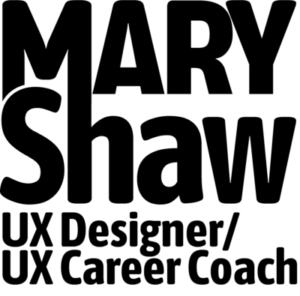What To Do When Your UX Job Interview Goes Wrong

What do you do when you don’t get a response after the first or second UX job interview? How do you even know what happened?
Many UX job seekers are able to get a first or second interview just fine, but then everything goes dark; they get no response from the recruiter or the hiring manager. What gives?
This is frustrating for several reasons. First, there’s no way to get feedback so you can make course corrections. Second, it makes you feel terrible. And third, it’s just rude and unprofessional. I know they’re busy, but it still boggles my mind why people can’t simply get back to someone who has invested considerable time with them.
Dust Yourself Off And Keep Going
If this has ever happened to you, please don’t take it personally. For whatever reason, the job just isn’t a good fit. And that’s actually a good thing. Better to know now than get hired and find out the place sucks. This happens a lot more often than you may realize.
Right or wrong (and I think it’s wrong), getting ghosted by potential employers is part of the job search process. It’s going to happen. The good news is there are a few things you can do to try and reduce the likelihood of it happening in the future.
Conduct An Interview De-Brief
If you have done multiple job interviews with no response, there are probably some behavioral and/or logistical patterns you can identify. Getting to the root cause of the problem will enable you to make adjustments at your next interview.
To start, make a list of every interview you’ve been on to date. Next, write down a summary of what happened at each. It’s important to reflect on every interview experience as objectively as possible.
For example, did you spend the time talking mostly about yourself or trying to identify the hiring company’s pains and problems? Was the hiring manager focused on the interview or distracted by other events happening in the office? How did you feel while you were there? Confident and poised, or unusually shaky?
If you haven’t yet, start keeping an interview journal. It doesn’t have to be lengthy. After each job interview, just jot down some quick observations about how you felt during the meeting, expected next steps and how you can improve going forward. This will help you stay organized so you can see patterns going forward.
Niche Down – Way Down
The UX field is huge and getting bigger all the time. From research to prototyping and everything in between, there are tons of different flavors of UX professionals. There’s even UX writer positions available now (which is a very good thing).
Which one are you? What industry or industries do you specialize in? What is most interesting to you? Where can you add the most value with your current skill set? How can you demonstrate that value within the context of what a potential employer needs?
Be Choosy And Empathetic
Accordingly, don’t apply to every single job opening available. That kind of shotgun approach just wastes everyone’s time. Instead, get laser-focused on what it is you do best and how you add value. Get really specific.
What sorts of expensive problems can you solve? How do you solve them? Can you explain this in a way that friends or loved ones can easily understand? This is your elevator pitch. Practice it in a safe environment so you can use it effectively during interviews.
When speaking with potential employers, be empathetic. Put your UX cap on and put yourself in their shoes. Discuss how your skills match up against their pains and problems. Why did they create the job they want to fill?
Tell A Compelling Story
Looking for a job means you are selling a product. That product just happens to be you. Besides marketing yourself effectively, you also need to appeal to potential employers on an emotional level.
That means you need to understand where they are coming from so you can tell a compelling story about how and why you can add value. If your story doesn’t resonate with what they need, you’ll continue to miss out.
At the end of the day people will be more interested in what’s between your ears than what’s on your resume or portfolio. Get your story straight with yourself first, then identify who you can help the most and how. Before you know it employers will be knocking on your door.
Is your career still in the design stage? Find out if my UX Career Coaching Program is right for you.
Like this post? Please share it. As always, thanks for reading!
